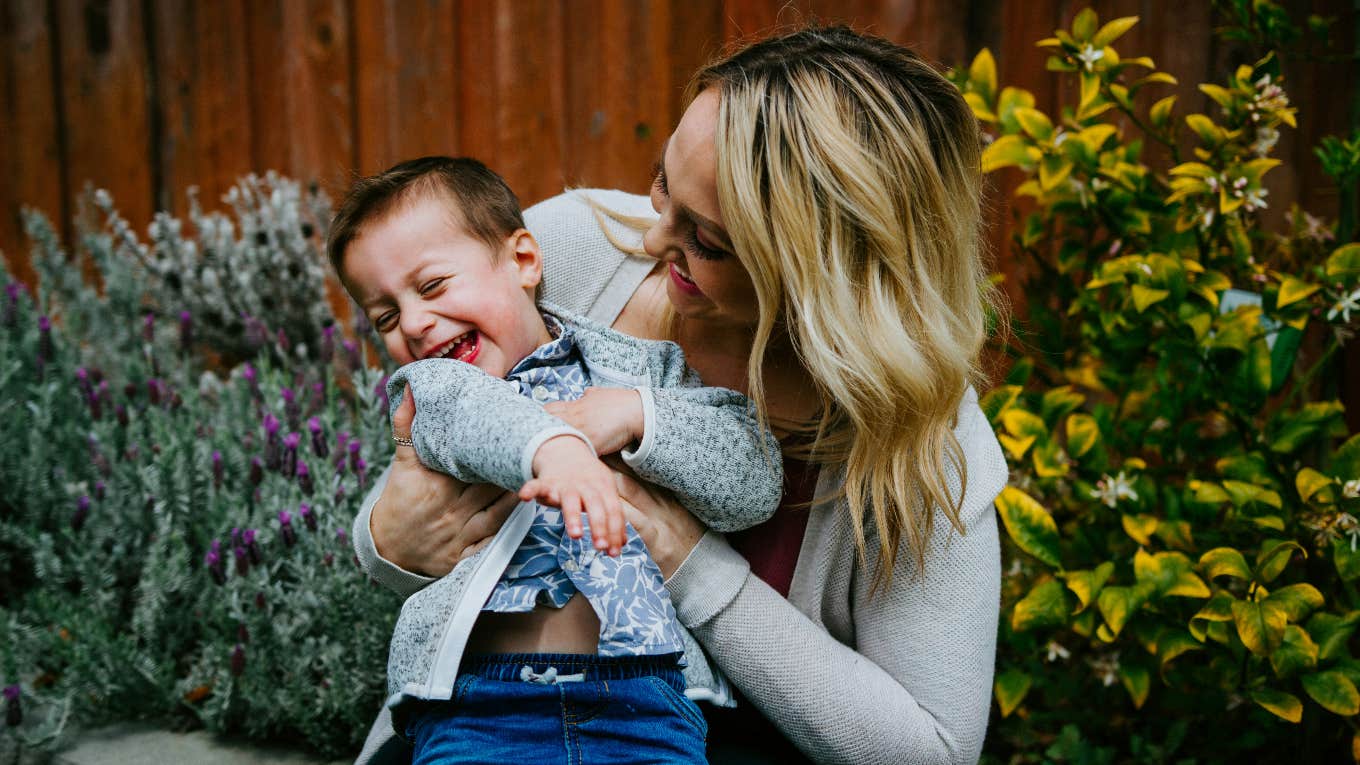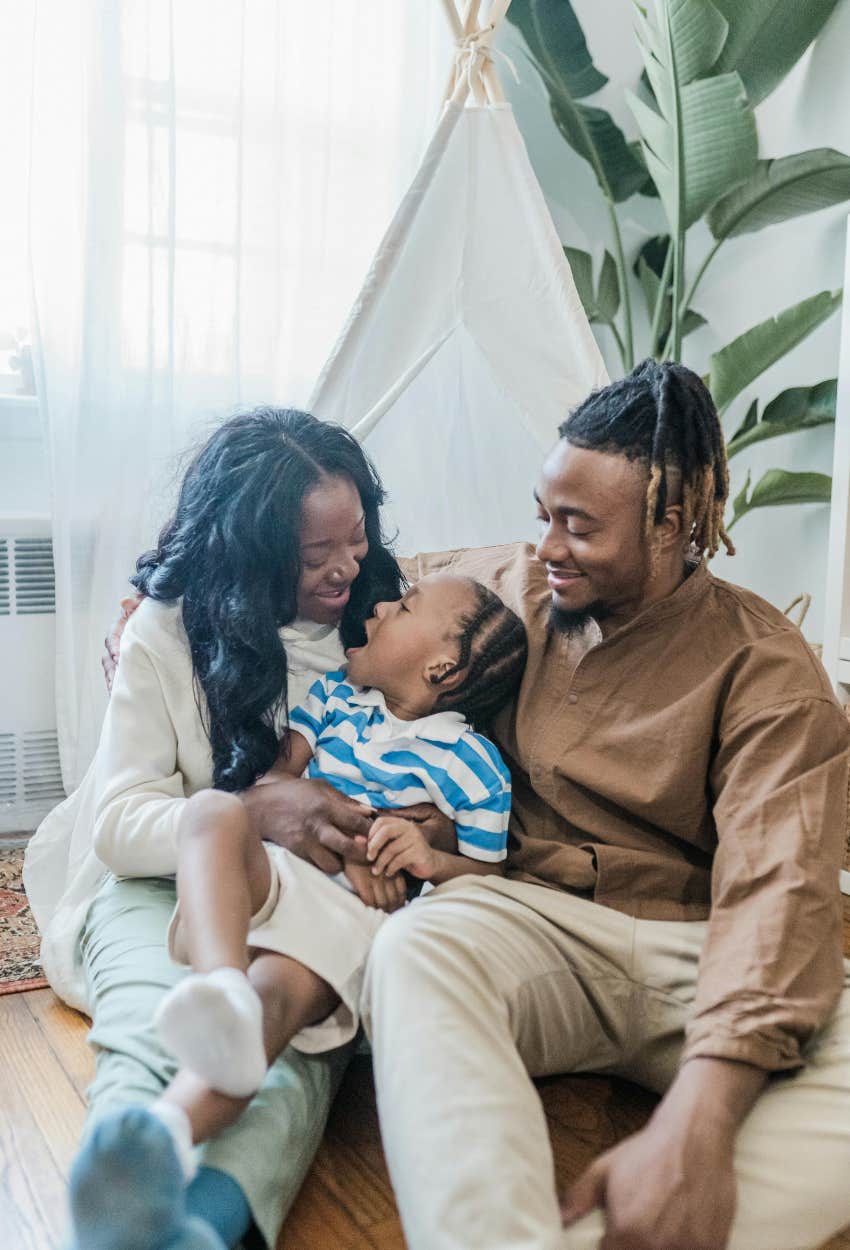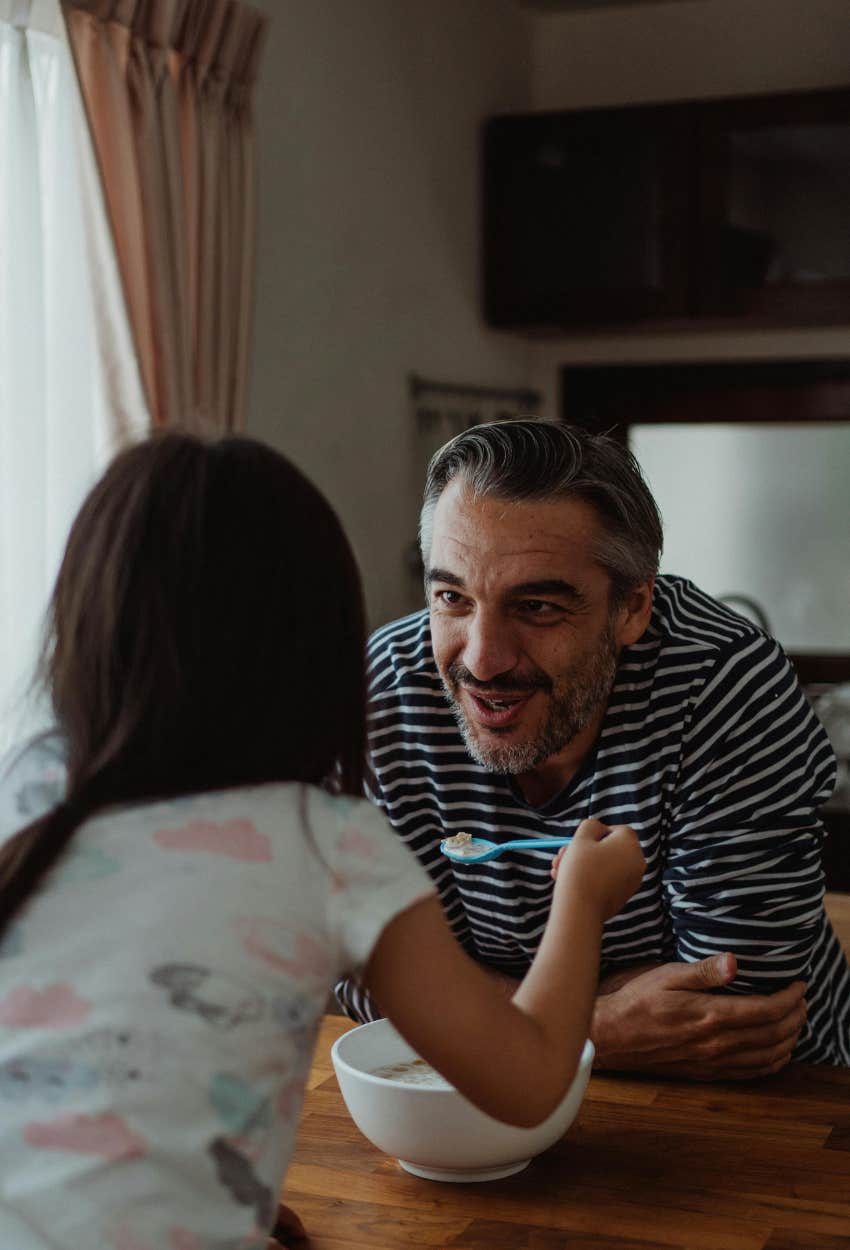Child Psychologist Who Studied Over 200 Kids Says This Parenting Style ‘Works Better Than The Rest’
Child psychologist Reem Raouda said implementing this parenting style ensures kids grow up in a loving home.
 Gabe Pierce | Unsplash
Gabe Pierce | Unsplash When it comes to raising a human, there are no set rules that work for every single family. Many moms and dads try out different parenting styles, from gentle parenting to permissive parenting, to find the right fit. While there are endless ways parents can establish boundaries with their kids while also providing the support they need, trying to find the right parenting style they can consistently use can feel daunting.
However, a child psychologist named Reem Raouda, who has spent years studying over 200 parent-child relationships, wrote for CNBC Make It that there is a specific parenting style that she's found to be the best. Raouda pointed out that raising kids doesn't have to be about being "strict" or "soft," but rather about providing a safe space for your child.
A child psychologist said the emotional safety parenting style 'works better than the rest.'
"That’s why I’ve developed a new parenting framework — one that I believe works better than the rest — rooted in what kids need most but rarely receive: emotional safety," Raouda wrote for CNBC.
 Mizuno K | Pexels
Mizuno K | Pexels
She explained that with emotional safety, the goal of the parent is to be deeply attuned to their child's emotional needs. In her line of work, Raouda teaches parents not only how to manage their children's behavior but also how to build emotional resilience, trust, and connection through open and honest conversations.
Emotionally safe parenting means that parents are setting clear boundaries and encouraging independence. But parents are also focusing on emotional attunement, self-awareness, and inner healing.
The psychologist described some of the traits that emotionally safe parents have.
"They accept their child’s emotions without rushing to fix or dismiss them. They respond without shaming their child — avoiding phrases that belittle, guilt or embarrass — even if those were the responses they grew up with. They view 'bad' behavior (i.e., screaming, yelling back, hitting another sibling) as stress signals, not defiance," she explained.
"They take responsibility after conflicts by apologizing and reconnecting, rather than punishing or withdrawing. They do the internal work — through journaling, therapy, or mindfulness — not to stay calm in the moment, but to become less reactive in the first place. They create an environment where their child feels safe expressing big emotions, asking questions and showing up as their full, authentic self."
Raouda continued, saying that parents embrace their whole child and show consistent acceptance of both the manageable and easy traits, alongside the negative and difficult ones. They don't simply show up when the child is "well-behaved," but are there for the bad moments as well. Emotionally safe parents also lead with calm, steady authority. They hold boundaries without fear and welcome their child's big emotions with compassion and clarity.
Communication is imperative to be an effective, emotionally safe parent.
Parents need to do extensive work themselves to be able to practice emotionally safe parenting, including doing the inner work first and reflecting on their own childhoods and emotional triggers. They must learn to view misbehavior as a request for support, not something to be immediately punished. Instead, they should set boundaries with their kids, opting for control, and model what healthy repair looks like.
In addition to the work they need to do with themselves, Raouda also emphasized that emotionally safe parenting is all about effective communication. She insisted that the way parents speak to their kids becomes how they speak to themselves.
 Ketut Subiyanto | Pexels
Ketut Subiyanto | Pexels
"I always try to use a calm, respectful tone with my child, even when setting limits. And I let him know that his feelings are valid: 'It’s okay to be upset,' or, 'I’d feel that way, too.' Most importantly, I want him to know that I’ll always be there for him: 'Even when things get hard, I’m still here,'" Raouda wrote.
At the end of the day, emotionally safe parenting is all about modeling the proper way to emotionally regulate. As they get older, that skill will come in handy when they start forming relationships and connections. Children who grow up in emotionally safe households will inevitably learn to trust themselves and make informed decisions, ultimately creating a sustainable and healthy future.
Nia Tipton is a staff writer with a bachelor's degree in creative writing and journalism who covers news and lifestyle topics that focus on psychology, relationships, and the human experience.

